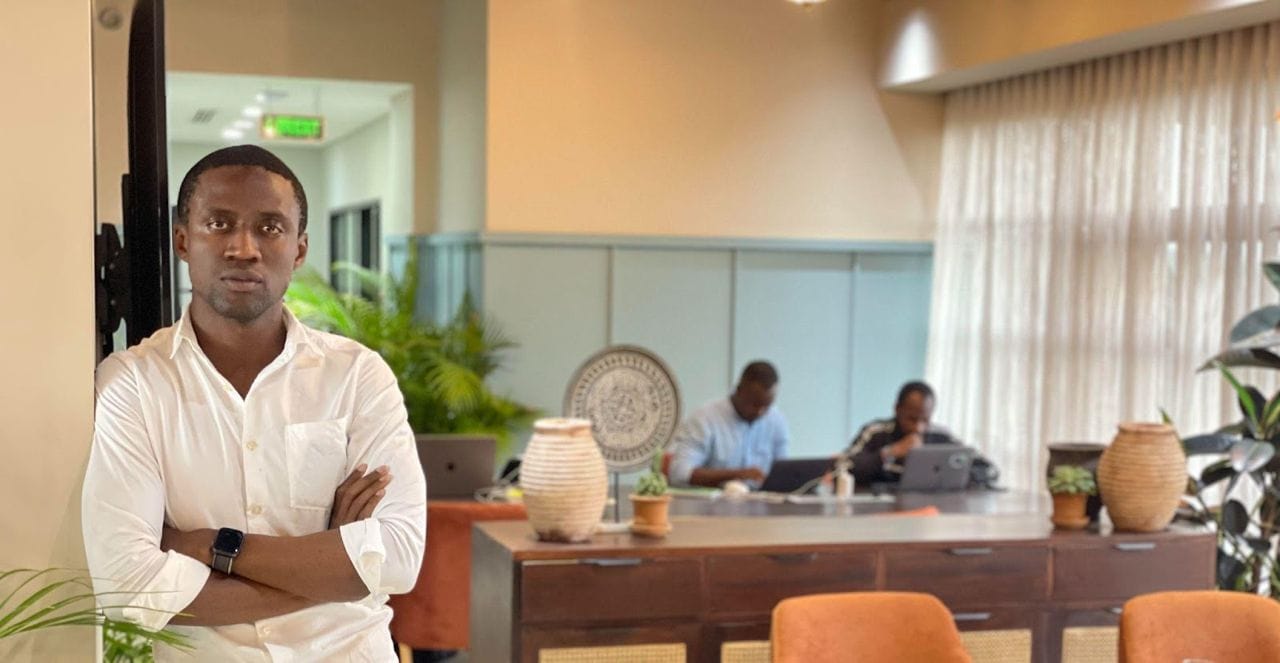This article was produced with the support of Africa Soft Power Group
This premise that Africa’s future economic power lies in its ideas was strongly articulated during the Creative & Innovative Industries Conference (CIIC), which brought together leaders in technology, media, finance and the arts. The programme explored how Africa can leverage creativity, innovation and digital infrastructure to fuel inclusive growth, in alignment with the summit’s overarching theme “Africa’s Growth Engine: Aligning the Flow of Money, Innovation, and Global Opportunities”.
From fintech and artificial intelligence to film production and digital storytelling, the sessions revealed a clear roadmap: build the systems, fund the stories and protect the data that can drive a new phase of African development on the continent’s own terms.
Building undoubtedly emerged as one of the key focal points of the day, and more specifically how the development of infrastructure – in all its forms – can help to fuel growth on the continent and beyond.
It may surprise some to learn that the term “infrastructure” did not itself emerge until the late nineteenth century, and we know that its definition has expanded significantly in more recent decades to cover not only the physical, but also the digital realm. In 2025, our interpretation of infrastructure is evolving still, and our awareness of its importance to both systems change and sustainable economics is more attuned than ever before.
“We need to think more about soft infrastructure in terms of regulatory clarity, data protection laws and system interoperability,” said Aliya Shariff, senior director at the Africa Catalytic Impact Fund, Mastercard Foundation. “Our businesses aren’t inferior, they’re just more expensive to operate.
“Inclusion isn’t just access; it’s affordability and usability. Even though Africa is leapfrogging into mobile finance, the continent still struggles with smartphone affordability, energy availability and device taxation policies.”
Philip Ikeazor, deputy governor for financial system stability at the Central Bank of Nigeria, went a step further, to say that “Infrastructure is what connects capital to innovation.” He emphasised how hard African entrepreneurs and regulators are now working to support fintech growth, saying: “We are constantly developing baseline standards that incorporate the latest technologies,” and noting that regulatory flexibility is crucial for ensuring both stability and innovation within the financial system.
Of course, where the increasing symbiosis between the physical and digital realms is currently being felt most emphatically is in the world of AI, and the huge global neural networks growing before our very eyes. AI understandably presented a common theme throughout most of the discussions taking place at the CIIC, both on and off-stage, with a particular emphasis on the need for the continent to take a uniquely African approach to both governance and deployment.
Dr Seydina Moussa Ndiaye, president of the Senegalese Association for Artificial Intelligence, made the case for digital sovereignty: “Digital sovereignty for Africa is not only controlling our data, controlling our infrastructure… It’s also about framing the technology within our own standards”.
It was a sentiment shared by many, including the likes of Kojo Boakye, vice president of public policy for Africa, Middle East and Türkiye at Meta, and Lorna Omondi, partnerships lead at Google Research Africa, the latter of whom said:
“We have focussed in this area on training models through African datasets and enabling multilingual support for undeserved communities. AI must solve the problems that matter most to African users – whether in agriculture, healthcare, energy access, or legal services. When we buy language data from the ecosystem, we partner with local universities, local startups, local governments… we put that data that we’ve bought in the open markets, so that other startups can build on top of the same things we’re building”.
Regional input into AI networks is crucial, not only as regards how this technology develops on the continent itself, but also in terms of how input from the continent can help steer and structure these rapidly developing platforms at large.
A recent report titled AI 2027 has received significant attention in the industry, partly due to the alarming rate at which it predicts artificial intelligence will begin to take over the world of work and even other areas of society as we know them. While the report goes so far as to say that the AI-driven change coming over the next decade “will be enormous, exceeding that of the Industrial Revolution,” it also tells us that change is now happening so rapidly, the AI landscape of tomorrow is difficult to visualise.
This point was echoed at the Creative & Innovative Industries Conference by Muthoni Karubiu, chief operating officer of Amini, who told delegates: “It’s not about building billion-dollar data centres. It’s about understanding what works for our context,” highlighting the rapid evolution of AI and the consequent need for continuous education for both policymakers and the public: “There’s nothing I can tell you today about AI that will still be true three years from now.”
One area in which we know the continent has traditionally excelled is the arts & entertainment sector. Monetisation of Africa’s creative output, from music and film to sports and fashion, was explored in depth at the conference. Across several panels, speakers argued that creativity should be seen not only as cultural expression but as an economic sector with the potential to attract investment, create jobs and shape global narratives.
Chi Ogbuehi, vice president, marketing technology & consumer products, National Football League (NFL), discussed initiatives like the NFL’s International Player Pathway program, which aims to cultivate sports talent directly on the continent. “We’re moving beyond visibility to investment,” she said, adding that sports ecosystems need structured development pathways.
Joel Omotto, senior reporter at Pulse, stressed the power of sports narratives in reshaping global perceptions of Africa. “We must tell stories of talent, resilience and victory – not just crisis,” he said.
When it comes to African soft power, the film sector has for some years now been touted as a potential stream for future growth. Back in 2022, Africa Soft Power founder and the summit’s convenor, Nkiru Balonwu, highlighted the breakthrough of Korean culture on the world stage in the form of exports like K-pop and Squid Game, and said that Africa needed to follow suit when it came to packaging its own creative products up for global audiences.
Today, particularly when it comes to film, those working in the industry on the continent and indeed throughout the diaspora community around the world, are aware that ambition needs to turn into action and creative endeavour into commercial viability.
Kola Aina, founding partner at Ventures Platform, argued at the CIIC that authenticity is essential to market success. “Locally developed stories that are contextual have the greatest chance of both impact and profit,” he said, urging creators to develop strong business cases and investors to prioritise “data, distribution and de-risking.”
Njoki Muhoho, founder and executive producer of Zebra Productions, spotlighted a deeper challenge around industry collaboration. “Where did we drop the value of collaboration?” she asked, calling for stronger linkages between creatives, investors and ecosystem enablers to strengthen the continent’s cinematic infrastructure.
Through such discussions, we saw that once again, ideas built around better infrastructure – physical, digital, regulatory and beyond – are critical to success in all of these creative and commercial areas.
Finally, an area of extreme interest at the CIIC centred around diaspora capital and structured investment. One panel was dedicated to the exploration of how diaspora remittances could be redirected from consumption support to structured investment.
Temi Popoola, chief executive officer of the Nigerian Exchange Group (NGX), said: “Remittances should be framed as more than just familial support. They can serve as access points into national development and capital markets.”
Andrew Kabeke Mutha, CEO of Safaricom Money Transfer Ltd, emphasised the need for reliability and trust, saying: “People want to know where their money is going,” while others called for initiatives like more interoperable systems across providers and countries, as well as highlighting the potential of diaspora investment to support climate resilience and infrastructure if supported by enabling policy.
Overall, the Creative & Innovative Industries Conference at the Africa Soft Power Summit 2025 made it clear that Africa’s creative and digital sectors are no longer peripheral – they are central to the continent’s economic future. Realising their potential will require investment, policy alignment and a fundamental belief in Africa’s capacity to lead with its own ideas, both on the continent itself and around the world.










